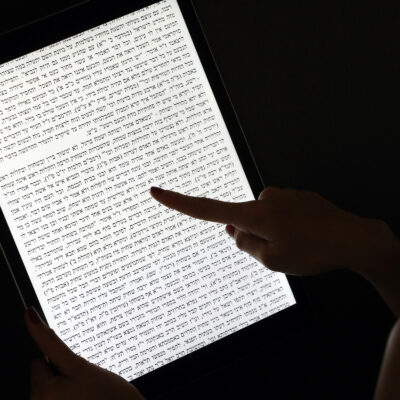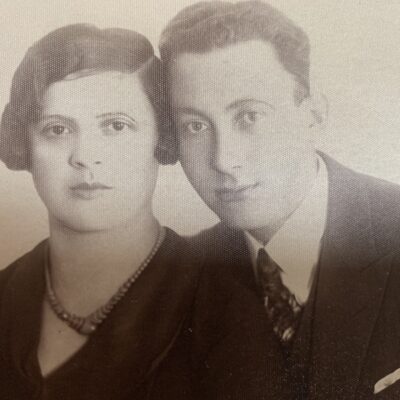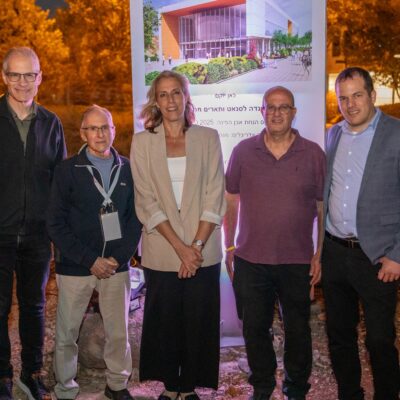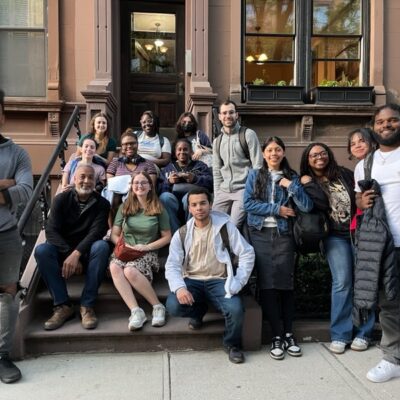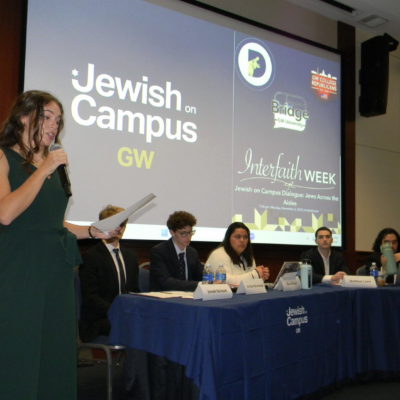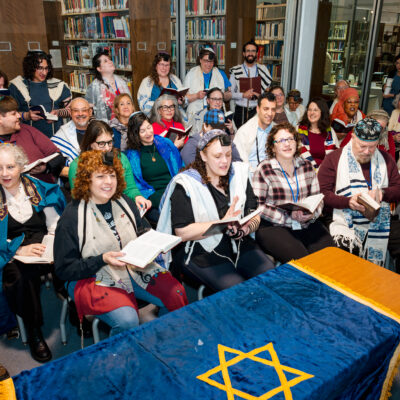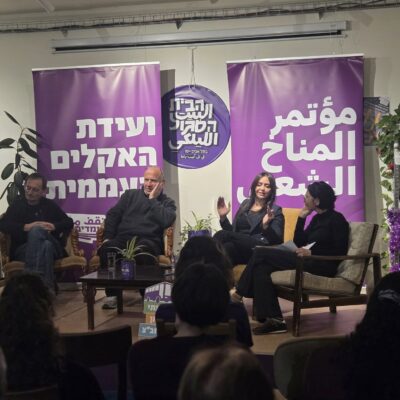Making Jewish Meaning
by Beth Cousens, PhD
Jerry “Tycho” Holkins and Mike “Gabe” Krahulik have been writing the on-line comic Penny Arcade for goodness knows how long (I’m not cool enough to have been around since the beginning). In a recent entry, Tycho clarifies why he sometimes presents his pieces as “purposefully incomplete.” He explains, “I’d rather you discover your own Why.” Then, he delivers a line so classic, so important, that it’s hard to believe it’s buried in a tech-geek cartoon:
“The moment where you seize an idea for yourself is what confers ownership.”
In other words, when you realize the idea on your own, when a handful of ideas come together in your head, independent of an external educator – that’s when you “own” the idea, when the idea becomes a part of you and the way that you see the world. Others have said this before. Few, though, have said it so succinctly as Tycho.
In this piece, I want to risk ruining his simplicity by unpacking “ownership” and providing a directive to American Jewish institutions to be purposefully incomplete with students, to put tools into students’ hands, and to create conditions to foster a more vibrant kind of Jewish life. I focus on two kinds of exploration: that of ideas and that of one’s sense of self.
1. Exploration of ideas: Knowledge is personal.
Jewish life has been a communal enterprise. When we commemorate the Exodus, for example, we do so as a people, remembering the Israelites’ (plural) experience. At the same time, it is written that every Jewish soul stood at Sinai, receiving the covenant. Within the context of community, an individual experience emerged.
Today, knowledge and learning have become similarly personal experiences. As we guide ourselves through websites, we manage our own explorations of ideas. We click on hot-linked articles. We respond to the precise recommendations offered by Amazon and Netflix, reviews edited down to cater to our preferences based on previous purchases. Our cultural consumption may be impacted by generic and impersonal formulas and the wisdom of crowds – but we still design our own journeys.
Tycho says, “The moment where you seize an idea for yourself is what confers ownership.” Especially when a covenant is at stake, even when a Netflix logarithm is needed, the personalized takes precedence – and is more effective – than the communal.
How can the process of Jewish education be similarly individualized, with the right resources given to students at the right times so they can engage in their own process of discovery?
2. Exploration of Sense of Self: We’re more meaning-driven than ever.
That we work within a meaning-oriented world is nothing new – leaning toward what makes us feel good is embedded in the very origins of the United States. But as the world gets more complex, this meaning-orientation is intensifying. We make choices based on what makes us feel good and what helps us make sense of our lives. We continuously work on questions:
- What commands our best time and our energy? Does this match our dreams?
- To whom or what are we committed in life?
- How do we want to be remembered? What will be our legacy?
These questions help us examine how we understand the world, our world. They capture not what we do every day, but what drives us and our commitments. We invent these ideas for ourselves; we do not (always) inherit them. For most, this meaning-seeking means that the Jewish idea of covenant taking precedence over the self will be foreign. But this also means that students are interested in matters of significance, of value… in what Judaism has to offer.
At Hillel, we have learned from author Sharon Daloz Parks that the process of exploring and answering these questions for oneself is a process of meaning-making that is also called faith development. When it occurs with Jewishly-knowledgeable guides, while delving into historical Jewish resources, it results in personal, critical thinking about one’s Jewish commitments.
Tycho says, “The moment where you seize an idea for yourself is what confers ownership.” Particularly when the idea that you seize is as profound as your understanding of the meaning of your life.
How can this intimate exploration of self take place?
The answers to these “how” questions are fairly straightforward. Jewish education can be a process that helps students through a journey of Jewish cognitive, spiritual, and emotional growth. It can result in new ways of seeing and interacting with the world, and that in turn results in students managing their own Jewish lives. At Hillel and in other settings (Boston’s Temple Israel, for example), Jewish education happens thus:
Sophisticated – “senior” – Jewish educators work intimately with students through personal relationships, in one-on-one or small group settings, as role models, mentors, and facilitators to guide students through their big questions. They use texts and ideas from Jewish tradition as a context for considering and discussing students’ questions – creating moments where students can “seize an idea” for themselves to take “ownership” over their Jewishness. Making meaning, Tycho style – individualized, where the student completes the ideas.
Through the generosity of the Jim Joseph Foundation, Hillel has piloted such “Senior Jewish Educators” on ten campuses around the country, intending that these Educators provide students with the right guides for their journeys. Through this experiment, Hillel is also working with all Hillel professionals to become such guides and mentors rather than program planners, measuring success through Jewish conversations and lives changed rather than through participation in events alone.
These professionals have expertise. But their goal is not to transfer that expertise. They are not instructors but rather pastoral counselors and community organizers. They work for organizations, but they do not aim to help students develop connections to those organizations (something that frequently happens anyway). They believe in organized Jewish life, but they do not preach the existence of “the” Jewish community. They create experiences not just to gather students together but to advance students’ own capacities and skills. They have ideas about what is important Jewishly but they follow student interests, not their own.
These professionals provoke students to ask questions, to open up their very souls, to examine their assumptions, to explore on their own. When students engage in this process, when they find the meaning of their worlds within the resources of Jewish tradition, students do seize ideas for themselves and come to “own” their Jewish lives. This type of education prepares them to manage their own Jewish journeys with a robust awareness of what being Jewish means to them. They have tools necessary for self-discovery, self-authorship and also self-leadership.
Our task as Jewish educators is to prepare and motivate students to use their power, talent, and passion to build their own Jewish lives, rooted in who they are and what they consider important. When through this individualized Jewish exploration, am’cha leads themselves into their own dreams, they will contribute in new and beautiful ways to the diversity of Jewish life. Even in these challenging times, there is no greater investment we could make.
Beth Cousens, PhD, is Associate Vice President, Joseph Meyerhoff Center for Jewish Experience, Hillel: The Foundation for Jewish Campus Life.
This post is from the series Growing Jewish Education in Challenging Times.

 Add EJP on Google
Add EJP on Google
